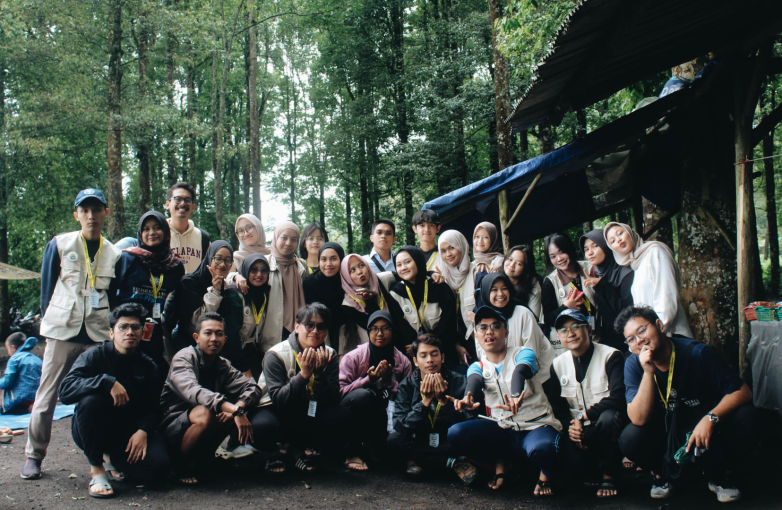
Gusnia Wirdafirdaus, a student majoring in Agricultural Economics and Agribusiness class of 2021 from the Department of Agricultural Socio-Economics, Faculty of Agriculture UGM, is currently participating in a Community Service Program (KKN) in Laksana Village, Ibun Subdistrict, Bandung Regency. The KKN, which runs for 50 days from July 1 to August 19, 2024, carries the theme “Empowering Communities through Agroecology and Geothermal Energy: Innovative Strategies for Optimizing Local Resources in Tourism and Creative Economy in Ibun and Laksana Villages with a Community-Based Development Approach.”
During the KKN, Gusnia and her team carried out six main work programs focused on community empowerment and school socialization. One of the most memorable activities for Gusnia was the collaboration and solidarity that developed among the KKN members as they helped each other successfully implement their planned programs. “We became very united in helping our friends succeed in their programs,” Gusnia said.
The challenges faced during the KKN were not insignificant, including difficulties in building camaraderie with fellow KKN members due to internship obligations that hindered bonding. Gusnia made efforts to maintain good relationships with her team members to stay cohesive. Additionally, disciplined time management was key to overcoming procrastination and the temptation to play rather than focus on work programs.
The work programs conducted by the KKN team were met with very positive responses from the Laksana Village community. Community participation and enthusiasm were high, with several work programs being the result of feedback and needs identified by the local residents. Collaboration with entities such as Pertamina Geothermal Energy and the Sheep Indonesia Foundation also played a crucial role in the success of these programs. According to Gusnia, this KKN experience has broadened her understanding of community needs and welfare, providing her with deeper insights into the social and economic challenges faced by village communities.
This KKN aligns with several Sustainable Development Goals (SDGs). Through community empowerment, the program supports SDG 1: No Poverty by helping to improve the welfare of the village community through the optimization of local resources. Additionally, the use and development of geothermal energy as a local resource aligns with SDG 7: Affordable and Clean Energy. The programs supporting the creative economy in the village also contribute to SDG 8: Decent Work and Economic Growth, creating opportunities for the community to enhance their economic conditions.
At the end of her KKN program, Gusnia expressed her deep gratitude to the Laksana Village community for warmly welcoming and supporting the KKN team. She hopes that the programs implemented will provide tangible benefits to the village. Gusnia also offered advice to other students who will undertake KKN, urging them to thoroughly observe community needs before designing their work programs so that their KKN experience can have a significant and meaningful impact.
Author: Adhika Hafizh Prasada, S.P.
Admin of the Website for the Department of Agricultural Socio-Economics, Faculty of Agriculture, UGM
